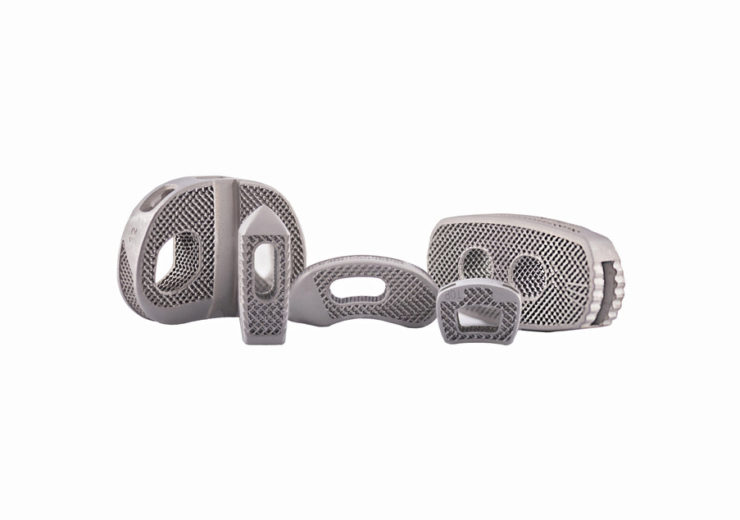The CONDUIT Implants portfolio was launched in 2018, after the acquisition of Emerging Implant Technologies (EIT), a developer of 3D printed technologies

Image: DePuy Synthes launched 3D Printed Implants for spine surgeries. Photo: Courtesy of PRNewsfoto/DePuy Synthes.
DePuy Synthes, a Johnson & Johnson Medical Devices Company, has launched the CONDUIT Interbody Platform with EIT Cellular Titanium Technology, to treat degenerative spine disease.
The CONDUIT portfolio includes 3D printed titanium interbody implants for spinal fusion surgery, and is designed to resemble natural bone, facilitating spinal fusion.
DePuy Synthes worldwide spine president Nadav Tomer said: “Our goal as a spine business is to focus on the areas with the most potential to solve unmet clinical needs, and we are excited to add advanced materials to our interbody portfolio as another option for surgeons.
“The launch of the CONDUIT portfolio, together with our comprehensive interbody implant offerings for degenerative disc disease, helps us deliver life-enhancing spine solutions that advance the standard of care for patients everywhere.”
DePuy Synthes’s 3D Printed Implants are used in spine surgeries
The company said that a degenerated, collapsed disc is removed and replaced with an interbody spacer, along with bone graft during spinal fusion, to restore natural height and alignment between two vertebrae.
Replacing an earlier mobile disc space between two vertebrae with an interbody spacer facilitates the segment to fuse as a single, solid bone.
Manufactured using 3D printing, the CONDUIT Implants are 80% porous for a differentiated cellular structure that mimics the properties of bone including modulus of elasticity, to facilitate bone fusion.
The company said that its offering features nanoscale surface roughness, 80% porosity, and a capability to closely mimic human cancellous bone.
St. Louis, Missouri-based neurological surgeon Wilson Z Ray said: “My experience with CONDUIT has been in both the lumbar and cervical spine. The implant allows for superior visualization, virtually no scatter on CT scan and early fusion assessment as compared to other titanium interbody devices.”
The CONDUIT Implants portfolio was launched after the Johnson & Johnson Medical Devices Companies acquired Emerging Implant Technologies (EIT), a Germany-based developer of 3D printed technologies for spine procedures in 2018.
